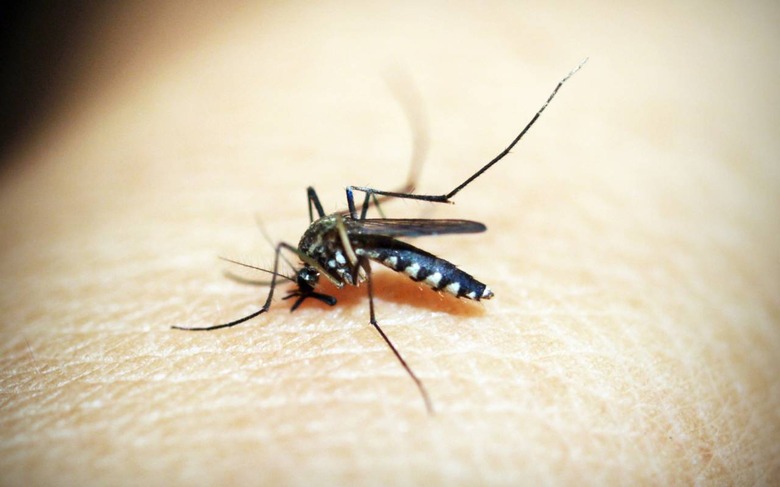Mutant Mosquitoes Approved To Help Florida Fight Dengue And Zika
750 million genetically-modified mosquitos will be released in Florida, as a project to use the mutant bugs to try to control dengue fever, Zika, and other diseases gets the green light. The controversial Oxitec project was granted EPA approval earlier this year, but it was only this week that local regulators gave the go-ahead to the trial.
At the heart of it is a specially customized mosquito. All male, and non-biting, it's designed to breed with wild female mosquitoes of the invasive Aedes aegypti species. It's this type which has been found to transmit diseases like dengue, yellow fever, Zika, and chikungunya.
Problem is, they're also increasingly resistant to pesticides, and that growing tolerance has made chemical attempts to kill the mosquitos off less effective over time. As a result, the Florida Keys Mosquito Control District (FKMCD) has been working with Oxitec on the genetically modified bugs instead.
The idea is straightforward. The male, modified mosquitoes mate with the wild female ones, but also carry a protein that's designed to kill female offspring before they reach the stage where they too would begin biting. Male offspring, however, will survive, but carry on the tweaked genetics to further expand the trial.

The FKMCD board voted four to one in favor of the trial, following Federal and State approvals of an "Experimental Use Permit" issued by the EPA in May 2020. Part of the requirements set out by the EPA limit where the modified mosquitoes can be released, including not permitting them near to circus orchards, and reporting any adult female mosquitoes found to have reached that age with the OX5034 generic construct.
It's not been a smooth path to this point, however. Environmentalists have pushed back against Oxitec's plans, accusing the company of testing unproven science in public, and raising concerns that the midst of a pandemic is not the right time for it. There are also worries among some that unforeseen mutations could lead to even more resistant versions of the bugs.
Contesting those fears, Oxitec points to "similar demonstration projects" that took place in Brazil. There, the modified mosquitoes reportedly suppressed disease-carrying Aedes aegypti mosquitoes by up to 95-percent – in a high 2-week rolling average – after 13 weeks, compared to untreated control sites in the same city.
Exactly when the Florida release will go ahead has not been settled upon. "The exact time and location of the trial has yet to be determined," the FKMCD says, "but the current 'Experimental Use Permit' granted to Oxitec dictates trials must be completed by 2022." Both the FKMCD and Oxitec have previously said that they plan sometime in 2021 for the launch.
